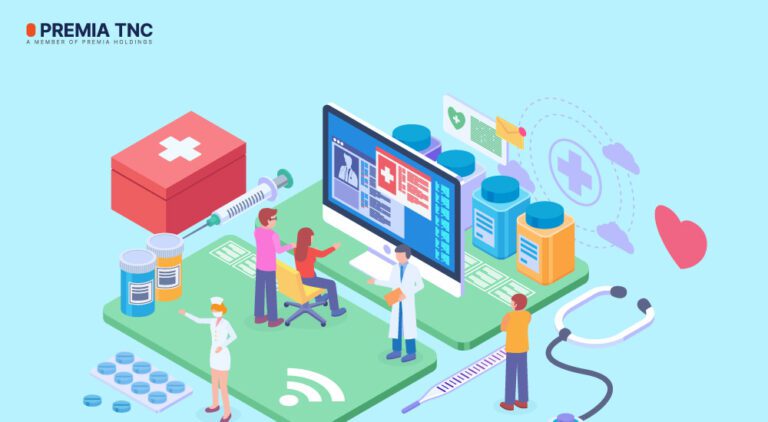South Korea’s healthcare industry has grown into one of the most advanced sectors in the region, driven by state-of-the-art facilities, cutting-edge technology, and dedicated professionals. As an essential pillar of South Korea’s economy, healthcare reflects the nation’s commitment to quality and accessibility, delivering robust services domestically while attracting patients and investors globally.
Historical Development & Current Landscape of South Korea’s Healthcare Industry
South Korea’s healthcare evolution began with foundational initiatives in the mid-20th century, focused on establishing public health services. Over the decades, government support and private investments helped to modernize the sector, introducing high standards in medical education and healthcare infrastructure. Major milestones, such as the establishment of the National Health Insurance System, laid the groundwork for universal healthcare access.
Today, South Korea’s healthcare market continues to grow, bolstered by technological innovation and a strong focus on public health. The industry boasts an impressive network of hospitals, clinics, and specialized centers, where both local and international entities play pivotal roles. Key players include Samsung Medical Center, Asan Medical Center, and Seoul National University Hospital, all recognized for their high-quality care and advanced medical research.
Government Role, Public vs. Private Healthcare System
The South Korean government is deeply involved in shaping healthcare policy. The Ministry of Health and Welfare (MOHW) oversees public health programs, regulations, and funding to ensure healthcare equity and quality. Through policies such as the “Health Plan 2030,” the government seeks to improve life expectancy and reduce health disparities, creating a healthier society.
South Korea operates a mixed healthcare system. Public healthcare, predominantly funded by the National Health Insurance Service (NHIS), covers most essential treatments, while private hospitals and clinics provide high-end services for those seeking premium care. Private institutions often cater to medical tourism, offering specialized treatments like cosmetic surgery and advanced therapies.
Key Healthcare Services and Specializations
The National Health Insurance Service (NHIS) provides universal health coverage, ensuring that citizens and residents have access to essential medical care. Despite its comprehensive nature, universal coverage does have limitations, particularly regarding high-cost treatments and certain elective procedures, which often require supplementary private insurance.
South Korea’s healthcare system is highly specialized, offering expertise across fields such as oncology, cardiology, and orthopedics. Additionally, the aesthetic medicine sector, known for cosmetic procedures, is particularly popular, contributing to South Korea’s prominence in wellness tourism. Advanced surgical techniques and post-operative care make the country a leader in these fields.
New Trends - Medical Tourism ,Digital Health and Telemedicine
Medical tourism has become a significant economic driver for South Korea. Patients from around the world seek treatments for skin care, dental work, and complex surgeries. State-of-the-art facilities and skilled specialists attract thousands of international patients each year, creating substantial revenue streams and boosting the local economy.
Digital health is transforming South Korea’s healthcare landscape. Telemedicine, although still in its early stages, is rapidly expanding, offering convenient access to medical consultations and follow-ups. Mobile applications, virtual consultations, and wearable health tech are making healthcare more accessible, particularly in rural regions.
South Korea’s healthcare sector is heavily invested in AI and big data analytics. Innovations in diagnostics, such as machine learning algorithms for image recognition, and robotic surgical tools exemplify the nation’s drive toward advanced healthcare solutions. Research into AI applications holds the potential to make diagnostics faster and more precise.
Pharmaceutical Industry, Biotechnology and Life Sciences
South Korea’s pharmaceutical industry is a vital component of the healthcare sector. Leading companies like LG Chem, Hanmi Pharmaceuticals, and SK Biopharmaceuticals are advancing in drug development and production. The regulatory process, overseen by the Ministry of Food and Drug Safety (MFDS), ensures that drugs meet high safety and efficacy standards.
South Korea’s biotechnology sector is flourishing, with breakthroughs in genetics, regenerative medicine, and stem cell research. These innovations are paving the way for advanced therapies that could transform treatment protocols, offering hope for incurable diseases and chronic conditions.
Medical Equipment and Healthcare Workforce
South Korea is also a leader in the medical device sector, producing high-quality equipment for both domestic use and export. Innovations in imaging, diagnostics, and minimally invasive surgical devices have positioned South Korea as a major exporter, with products in demand across the globe.
South Korea’s healthcare workforce is well-trained, with rigorous medical education standards. However, there are growing concerns about workforce shortages, especially in rural areas, and strategies are being developed to address these gaps and ensure a sustainable talent pipeline.
Regulatory Landscape for Healthcare
Healthcare regulation in South Korea is managed by several key bodies, including the MOHW and MFDS. Compliance with the Medical Service Act and the Pharmaceutical Affairs Act is mandatory, as these laws regulate everything from hospital operations to drug approvals, ensuring that healthcare providers maintain high standards.
With the proliferation of digital health services, data privacy has become paramount. The Personal Information Protection Act (PIPA) governs how healthcare providers manage patient data, enforcing stringent security measures to protect against cyber threats and ensure patient confidentiality.
Opportunities and Challenges in South Korea’s Healthcare Industry
South Korea’s healthcare market offers numerous investment opportunities. Government incentives, a skilled workforce, and advanced research facilities make the country attractive to foreign investors interested in pharmaceuticals, biotech, and medical device manufacturing.
An aging population is one of South Korea’s primary healthcare challenges, increasing demand for geriatric care and long-term health services. Rising costs and budget limitations also place pressure on the healthcare system to find more efficient ways to deliver high-quality care.
Sustainability and Future Trends in South Korean Healthcare
South Korea is increasingly focusing on sustainable healthcare practices, emphasizing eco-friendly hospital designs and efficient resource management. Future trends include continued growth in digital health, expanded telemedicine, and further developments in AI-driven healthcare solutions.
South Korea’s healthcare industry is a dynamic and innovative sector with substantial growth potential. While the industry faces challenges, it also offers myriad opportunities for investment, technological advancement, and international collaboration. As South Korea continues to prioritize healthcare modernization and patient care, the future promises continued expansion and innovation in this critical field.




